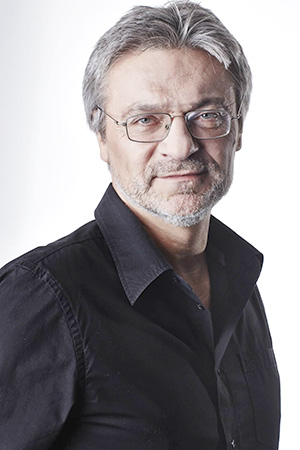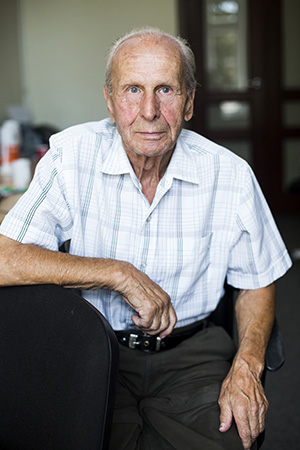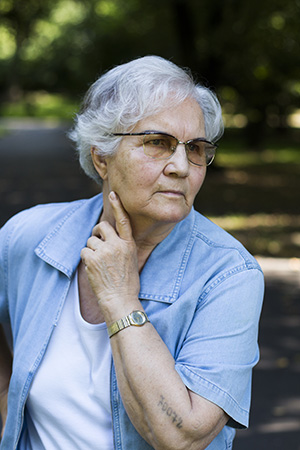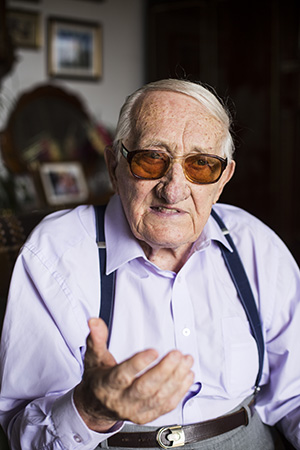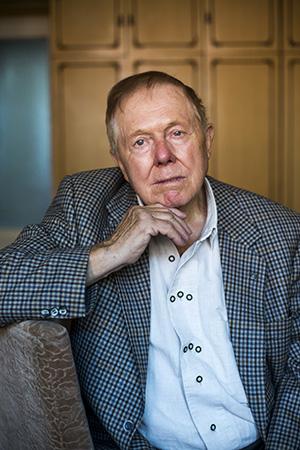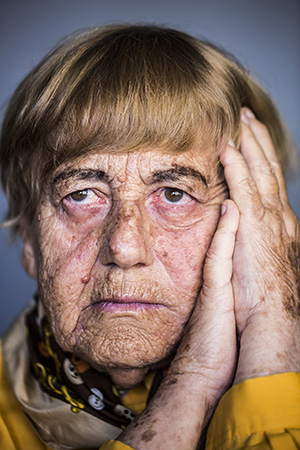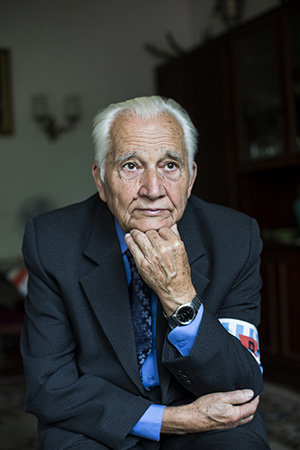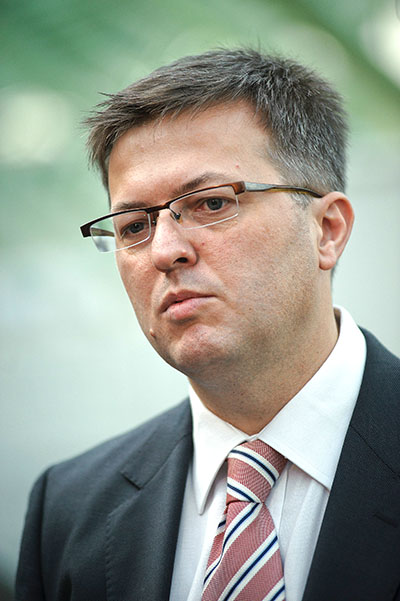
Photo by MHP/Mariusz Szachowski
Only few people, even in Poland, realise that there used to be special concentration camps that were designed specifically for Poles. Take Mauthausen-Gusen for example, where several thousand Polish people were murdered, including much of the Polish intelligentsia.
In conversation with Robert Kostro, Head of the Polish History Museum
You are the one who took firm action and called the White House to apologise after President Barack Obama had used the phrase “Polish death camps” on presenting the Presidential Medal of Freedom to Jan Karski. What made you decide it was worth the effort?
It was not exactly like that. The Museum of Polish History carried out a large campaign to promote Jan Karski in Poland and abroad as a prominent historical figure with exhibitions, educational programmes, websites, etc. By bringing Karski’s story to foreign visitors, we could raise the awareness of the German occupation of Poland, the achievements of the Polish Underground State and Polish aid to Jewish people. One of the campaigns that we conducted with a variety of our American partners was aimed at awarding the Presidential Medal of Freedom to Jan Karski. President Obama used the phrase “Polish death camps” while handing the medal to Professor Rotfeld, who represented the Polish government. President Obama later sent a letter to President Komorowski, in which he explained and apologised, but he did this in response to the letter received from the Polish President. Irrespective of all this, both the fact that the medal was presented during a gala held at the Holocaust Museum and the ensuing media hubbub played a part in promoting the figure of Karski and the legacy of the Polish Underground State. They also helped to raise awareness in American society and fight this unfortunate phrase.
Why do you think the term “Polish concentration/death camps” is used increasingly more often by Western media?
In fact, this type of wording was used immediately after World War II, even in Polish publications. However, everybody at the time knew who the perpetrators were, and the Holocaust was discussed in conjunction with other war crimes of the era. Poland was considered to be one of the major victims in the conflict. This began to change in the 1960s and 1970s. While Israel and American Jewry started to invest in a variety of institutions and campaigns that were designed to preserve and promote the memory of the Holocaust, Communist Poland, which was on the other side of the Iron Curtain, did very little to break through with the Polish perspective on the subject. This also fitted in nicely with German discourse, which was aimed at shifting the responsibility for the crimes from the state of Germany onto the Nazis. The following asymmetry has been produced: the ignorance of Polish history has progressed and the marginalisation of Polish experience has continued, while the focus on the Holocaust and the role of Jewish memory has increased in global debate. As a results, for two or three decades now, young people in the US, France or Israel have had a tendency to link “Polish concentration camps” to the alleged Polish war crimes, which often contributes to the false representation of Poland and Polish people as complicit in the Holocaust.
What measures do you think should be taken for the Western media to avoid phrases such as “Polish death camps”?
In my view, the most important thing is to take consistent action in order to promote facts and pursue disclaimers. Ideally, this can be done by embassies, government institutions and NGOs. The second important thing is that we stay equally consistent in presenting our Polish experience and the Polish perspective on the German occupation of Poland and World War II. We can do this by preserving the memory of the Righteous and our great heroes such as Jan Karski or Witold Pilecki. Last but not least, we should also restore the memory of Polish people and their suffering during World War II. Only few people, even in Poland, realise that there used to be special concentration camps that were designed specifically for Poles. Take KZ Mauthausen-Gusen for example, where several thousand Polish people were murdered, including much of the Polish intelligentsia.
The Museum of Polish History is extremely active in shaping Poland’s international reputation. Does the Museum take regular initiatives to raise the awareness of German war crimes and promote true information on the Poles and their heroic conduct during World War II?
The Museum has participated in a number of initiatives that were designed to raise the awareness of Poland’s suffering and Polish heroism. I have already mentioned the centenary of Jan Karski’s birth. We are now also pursuing several different projects to preserve the memory of Polish suffering in Mauthausen-Gusen, including exhibitions, websites and documentaries. The Museum of Polish History is also one of the first institutions to have joined the Google Cultural Institute. To date, we have organised exhibitions on Jan Karski and Witold Pilecki with the Institute that have reached several million people globally. For many years now, we have been participating in a conference series “Recovering Forgotten Past”, which is organised by the Institute for Civic Space and Social Policies. The English-speaking authors of academic textbooks and publications on the history of Poland and Central-Eastern Europe visit Poland as part of the series to discuss their papers with their Polish colleagues. This has helped them to eliminate mistakes, stereotypes and distortions in over a hundred of textbooks that are used for teaching history at American universities.
What role is there for the museums or memorials to play in breaking through with the true account of World War II to the general public in the West?
The museums play an extremely important role because they act in a variety of areas; they organise exhibitions, carry out educational and promotional campaigns and collaborate with foreign cultural and research institutions. Places such as the Warsaw Uprising Museum, the Museum of the History of Polish Jews, the Auschwitz Memorial and State Museum and other museums of similar profile serve both as tourist attractions and active partners contributing to international research or educational projects. The representatives of foreign media and film producers often contact the museums for help, materials and advice. The Museum of World War II and the Museum of Polish History will have a leading role to play in breaking through with the true account of World War II to the general public in the West.





